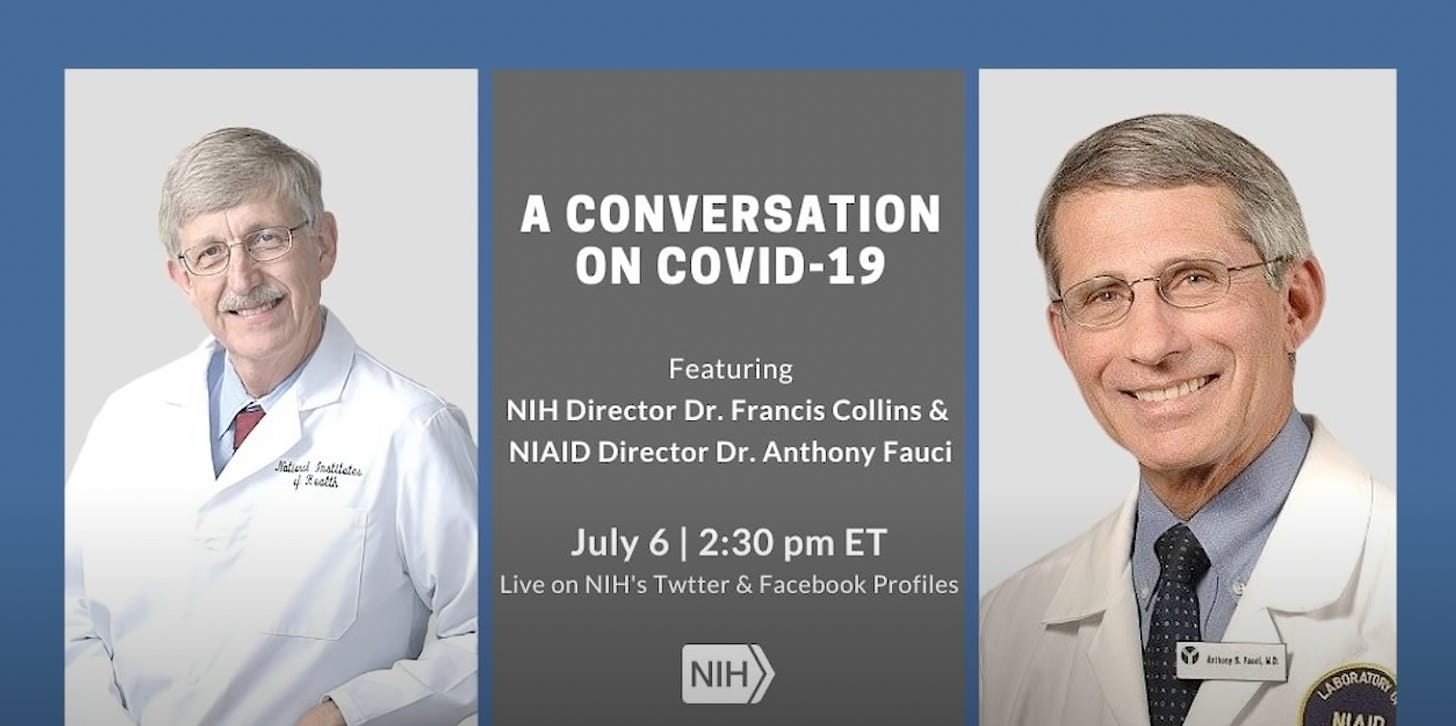Science is Compliance
on the problem of top-down and center-out medicine
Healthcare consumes one-fifth of GDP, so here’s a very strange warning from Politico:
Physicians who see long Covid patients say the condition underscores the fragility of the American health care system, including how difficult it is for people to access care and how hard it is for doctors to learn about emerging conditions.
Our $3.7 trillion medical system is characterized by its fragility, the narrative says, with patients who can’t get treatment and doctors who can’t learn. So what’s gone wrong? Here’s the headline, with a whole universe of silly assumptions baked into every word:
Things have gone horribly wrong in American medicine; for example, “physicians are sharing ideas.”
I’m just taking a moment to stare at my own sentence. Be right back.
Anyway, medicine is broken — doctors are thinking. Sick people show up to see them, and they try to figure it out themselves by using, like, evidence and diagnostic practice and their medical knowledge. Lacking government directives, physicians are living with a horrible system in which they have to assess sick people and come up with their own answers about their illnesses and the best course of treatment. And so, Politico reports, networks of doctors are gathering to share data and work collaboratively, a sure sign that things have gone horribly wrong:
While the network is helping patients and doctors navigate the disease’s uncharted waters, long Covid doctors say there’s only so much they can do on their own. The federal government should be doing more, they say, to provide resources, coordinate information sharing and put out best practices. Without that, the doctors involved fear the condition, which has kept many of those afflicted out of the workforce, threatens to spiral.
Imagine what doctors will be like after two more generations shaped by the assumption that the federal government is the only proper source of “best practices.” The pathologization of socially and institutionally healthy behavior — professionals, confronted with a new problem, work together to gather evidence so they can analyze and apply it — speaks to the ruin inflicted by the pandemic, by the federal funding and steering of science, and by the Saint Anthonying of medicine: If government doesn’t tell you how, you can’t possibly know how. You expect your doctor to use a lifetime of education and experience to figure out what’s wrong with you; Politico expects your doctor to apply the government guidelines, but finds to its alarm that the government doesn’t offer any. How can you make a sandwich if the government hasn’t published a protocol on the application of condiments?
If you’ve felt rigidity and a lack of productive exchange in your conversations with your own doctor, we may have a suggestion here about the why part. I can’t assert that with total confidence, because the federal government hasn’t provided me with an analytical framework.
And so the debilitation of people who should have professional knowledge and competence becomes normal and expected. A scientist is someone who gets checks from the NIH, unless the scientist is one of the other kind and gets checks from the NSF, and ideological compliance is part of the deal. A doctor is someone who applies the government protocols. Federal agencies wear your doctors like a skin suit, and apply their medical solutions through the hands of others. If that’s not how it works — if your doctor works in creative and thoughtful ways to make sense of an illness and provide an effective treatment — something has gone wrong.
This is the path to rigidity and harm — and California is leading the way, the drum major in an insane federal parade:
Hello, I am Dr. Current Thing. I will now apply the words I have been handed on this standardized document, so that I may avoid punishment.
Look at this worldview: Professionals figuring out a problem for themselves in the absence of federal directives is a sign of a broken system.
The problems implied by that set of assumptions go far beyond medicine.




Does this shit show ride have an exit?
Had an appt with my doc today. He came in wearing a mask (I was offered one per protocol by the receptionist and declined with a smile). I told him, "you don't need to wear that as far as I'm concerned." (It was, btw, a cheap throwaway mask, not an N95.) We proceeded to talk about how corporations including the healthcare system that employs him are operating without regard for actual medical or scientific reasoning. In fact, we both concluded, corporations hate people. That was it. We agreed that corporations hate people. So he has to go through his day miserably masked. And if I want care from someplace in the system (he ordered an x-ray for me), I have to go miserably masked. (I again declined, btw, so I was refused the prescribed x-ray.)